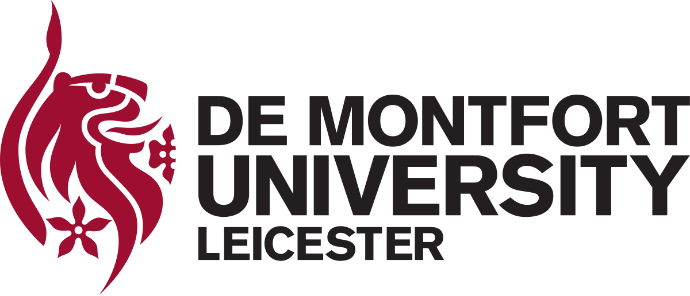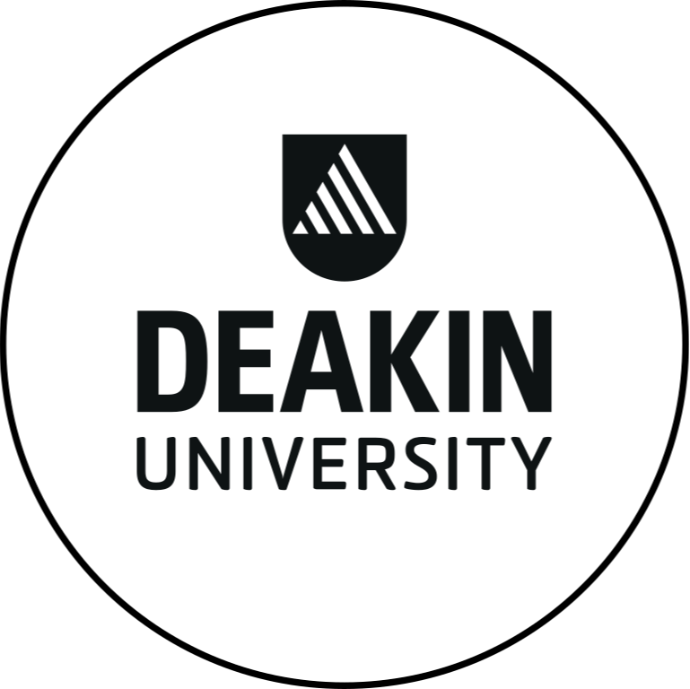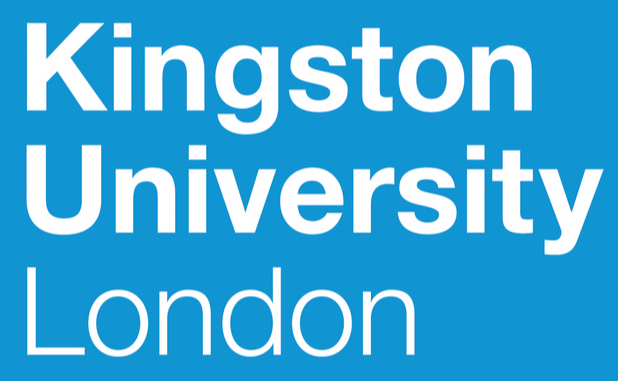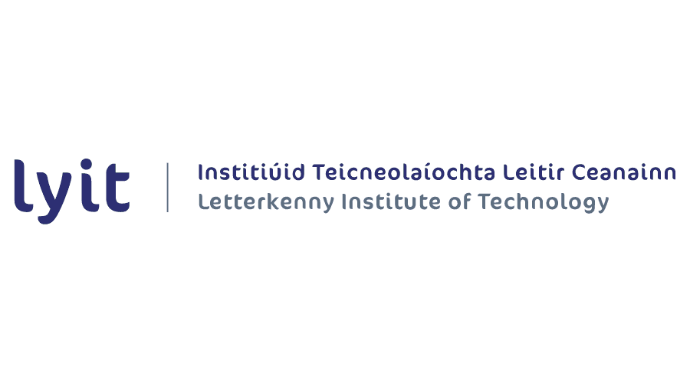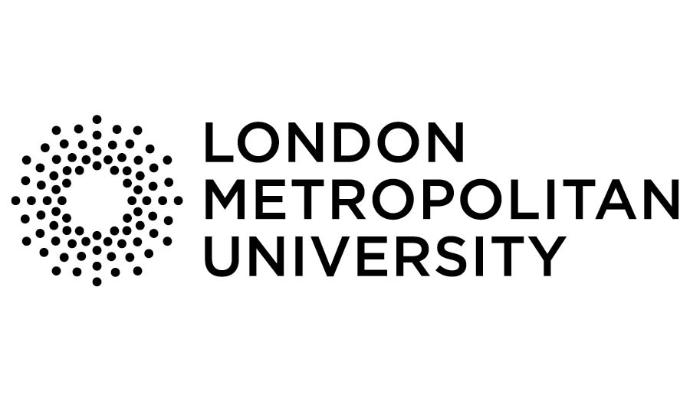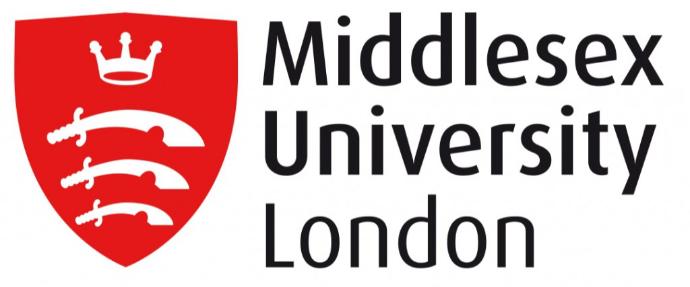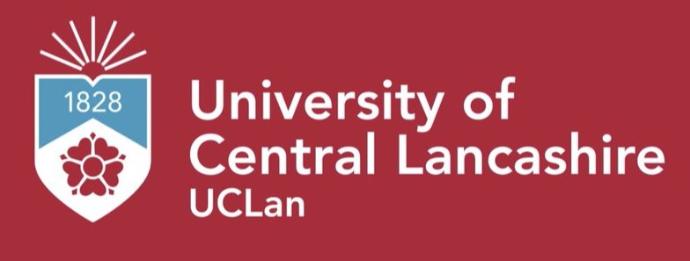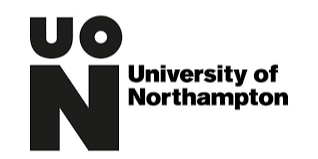Overview
Year 2 (Cambodia/Laos) / Year 1 (UK/AUS/NZ) / Sophomore Year (US/CAN)
Level 4 Diploma in Computing (RQF) (L4DC) makes up the first year of the NCC Education degree journey. The qualification is equivalent to the first year of an IT degree in the UK university system. Students will be given the opportunity to develop essential thinking and study skills, not only within the computing domain, but also within the context of business through a balance of academic and vocational subjects. The qualification will allow them to understand and enter the computing profession with the necessary knowledge expected within the industry and the ability to apply the skills to a range of IT-related functions.
On successful completion of the qualification students will be able to embark on NCC Education’s Level 5 Diploma in Computing (L5DC), which is equivalent to the second year of a UK Bachelor’s degree, transfer to a university or pursue a career in the IT industry.
Year 3 (Cambodia/Laos) / Year 2 (UK/AUS/NZ) / Junior Year (US/CAN)
The Level 5 Diploma in Computing (RQF) (L5DC) makes up the second year of the NCC Education degree journey and builds upon the knowledge gained during the NCC Education Level 4 Diploma in Computing (L4DC). Exposing students to greater detail and more advanced topics in a range of areas including database development, information systems analysis, network security and cryptography. Students will study a balance of academic and vocational subjects in order to provide the necessary knowledge and skills to play a significant role in IT organisations.
On successful completion of the qualification students will be able to complete the final year of a degree with the NCC Education Business Computing and Information Systems Top Up validated by the University of Central Lancashire (UCLan), the University of Greenwich Computing Top Up delivered at our Accredited Partner Centres, at one of the many universities that recognise NCC Education qualifications, or pursue a career in the IT industry.
Year 4 (Cambodia/Laos)/ Year 3 (UK/AUS/NZ) / Senior Year (US/CAN)
Bachelor of Science (Hon) Computing (Network systems or Information Systems)
This qualification provides students with the required theoretical knowledge and practical skills to apply to a real business environment. The degree is awarded by the University of Greenwich. The first and second year of the degree journey is awarded and certificated by NCC Education. Graduates can pursue careers as a:
Level 4 Diploma in Computing (RQF) (L4DC) makes up the first year of the NCC Education degree journey. The qualification is equivalent to the first year of an IT degree in the UK university system. Students will be given the opportunity to develop essential thinking and study skills, not only within the computing domain, but also within the context of business through a balance of academic and vocational subjects. The qualification will allow them to understand and enter the computing profession with the necessary knowledge expected within the industry and the ability to apply the skills to a range of IT-related functions.
On successful completion of the qualification students will be able to embark on NCC Education’s Level 5 Diploma in Computing (L5DC), which is equivalent to the second year of a UK Bachelor’s degree, transfer to a university or pursue a career in the IT industry.
Year 3 (Cambodia/Laos) / Year 2 (UK/AUS/NZ) / Junior Year (US/CAN)
The Level 5 Diploma in Computing (RQF) (L5DC) makes up the second year of the NCC Education degree journey and builds upon the knowledge gained during the NCC Education Level 4 Diploma in Computing (L4DC). Exposing students to greater detail and more advanced topics in a range of areas including database development, information systems analysis, network security and cryptography. Students will study a balance of academic and vocational subjects in order to provide the necessary knowledge and skills to play a significant role in IT organisations.
On successful completion of the qualification students will be able to complete the final year of a degree with the NCC Education Business Computing and Information Systems Top Up validated by the University of Central Lancashire (UCLan), the University of Greenwich Computing Top Up delivered at our Accredited Partner Centres, at one of the many universities that recognise NCC Education qualifications, or pursue a career in the IT industry.
Year 4 (Cambodia/Laos)/ Year 3 (UK/AUS/NZ) / Senior Year (US/CAN)
Bachelor of Science (Hon) Computing (Network systems or Information Systems)
This qualification provides students with the required theoretical knowledge and practical skills to apply to a real business environment. The degree is awarded by the University of Greenwich. The first and second year of the degree journey is awarded and certificated by NCC Education. Graduates can pursue careers as a:
- Business analyst
- Database Administrator
- Project manager
- Programmer
- Web developer
- IT Consultant
-
System analyst
The BSc (Hons) Computing (with specialisations available in Network Systems and Information Systems) Top-up Degree is delivered by NCC Education Accredited Partner Centres. It has been designed to prepare students for employment in the IT sector.
Teaching and learning
Year 2 (Cambodia/Laos) /Year 1 (UK/AUS/NZ) / Sophomore Year (US/CAN) /
NCC Education Level 4 Diploma in Computing (L4DC)
Students must study the following eight core units:
NCC Education Level 5 Diploma in Computing (L5DC)
Complete four core units and two optional units:
Core units
Bachelor of Science (Hon) Computing
Three core units and two elective units.
CORE UNITS:
BSc (Hons) Computing (Network Systems)
NCC Education Level 4 Diploma in Computing (L4DC)
Students must study the following eight core units:
- Skills for Computing – This module provides essential skills required by computing students. The skills taught include study, presentation, report-writing and data handling skills. It will prepare students for successful outcomes in their studies and provide them with skills that can be applied in the workplace.
- Computer Networks – This module helps students to develop a good understanding of basic theory and useful practical skills of networking and communication that are vital in today’s connected world.
- Computer Systems – This module addresses the development of practical skills in the configuration, maintenance, fault finding and trouble-shooting of modern computer systems and develops knowledge of computer architecture.
- Designing and Developing a Website – This module provides students with the practical skills required in website design such as understanding of mark-up languages, style sheets, design techniques and testing.
- Databases – This module provides students with thorough training in practical techniques for the design and development of database systems and develops a sound understanding of the underpinning theory.
- Designing and Developing Object-Oriented Computer Programmes – This module provides students with a thorough grounding in programming methods, and a detailed knowledge of developing programs using C#.
- Software Development Techniques – This module addresses the wider issues of software development together with a language-independent survey of useful data structures and algorithms.
- Office Solutions Development – This module teaches students to develop practical skills in the automation of common office applications to support a variety of tasks.
NCC Education Level 5 Diploma in Computing (L5DC)
Complete four core units and two optional units:
Core units
- Network Security and Cryptography – This module provides students with the underlying theory and practical skills required to secure networks and to send data safely and securely over communications networks.
- Information Systems Analysis – This module equips students with a range of tools to analyse the function and requirements of information systems, as well as the skills to compare systems analysis models and to examine them in the wider context of the Internet and the social, economic and political climate of an organisation.
- Database Design and Development – This module allows students to develop skills in the design and development of databases and database management systems, as well as investigating enterprise applications of databases.
- Computing Project – This module provides students with the opportunity to utilise the skills needed to develop a computing artefact to solve a problem, which involves research, analysis, design, coding, testing and project management knowledge and expertise.
- Professional Issues in IT – This module highlights the professional issues that impact the development, deployment, maintenance and use of computer systems. It equips students with the knowledge surrounding social, ethical and legal issues applicable to the IT field and also a working understanding of software quality.
- Agile Development – This module explores the processes, people, practices and principles of agile development systems. It prepares students for future trends in software development and reinforces their understanding of the information systems development process.
- Analysis, Design and Implementation – This module provides students with in-depth knowledge, skills and experience in the use of object-oriented techniques for the development of software. It develops students’ expertise in object-oriented analysis, design and coding, and the testing of systems.
- Dynamic Websites – This module builds on existing knowledge of both databases and web design in order to build dynamic websites and also equips students with a range of skills to present content on the World Wide Web.
Bachelor of Science (Hon) Computing
Three core units and two elective units.
CORE UNITS:
- Human Computer Interaction and Design (15 credits)
- Requirements Management (15 credits)
- Project (60 credits)
BSc (Hons) Computing (Network Systems)
-
Network Technology (15 credits)
- Advanced Networks (15 credits)
-
Information and Content Management (15 credits)
Database Management and Administration (15 credits)
-
Mobile Application Designed & Development
- Enterprise Web Software Development
Assessment
Year 2 (Cambodia/Laos) / Year 1 (UK/AUS/NZ) / Sophomore Year (US/CAN) /
NCC Education Level 4 Diploma in Computing (L4DC)
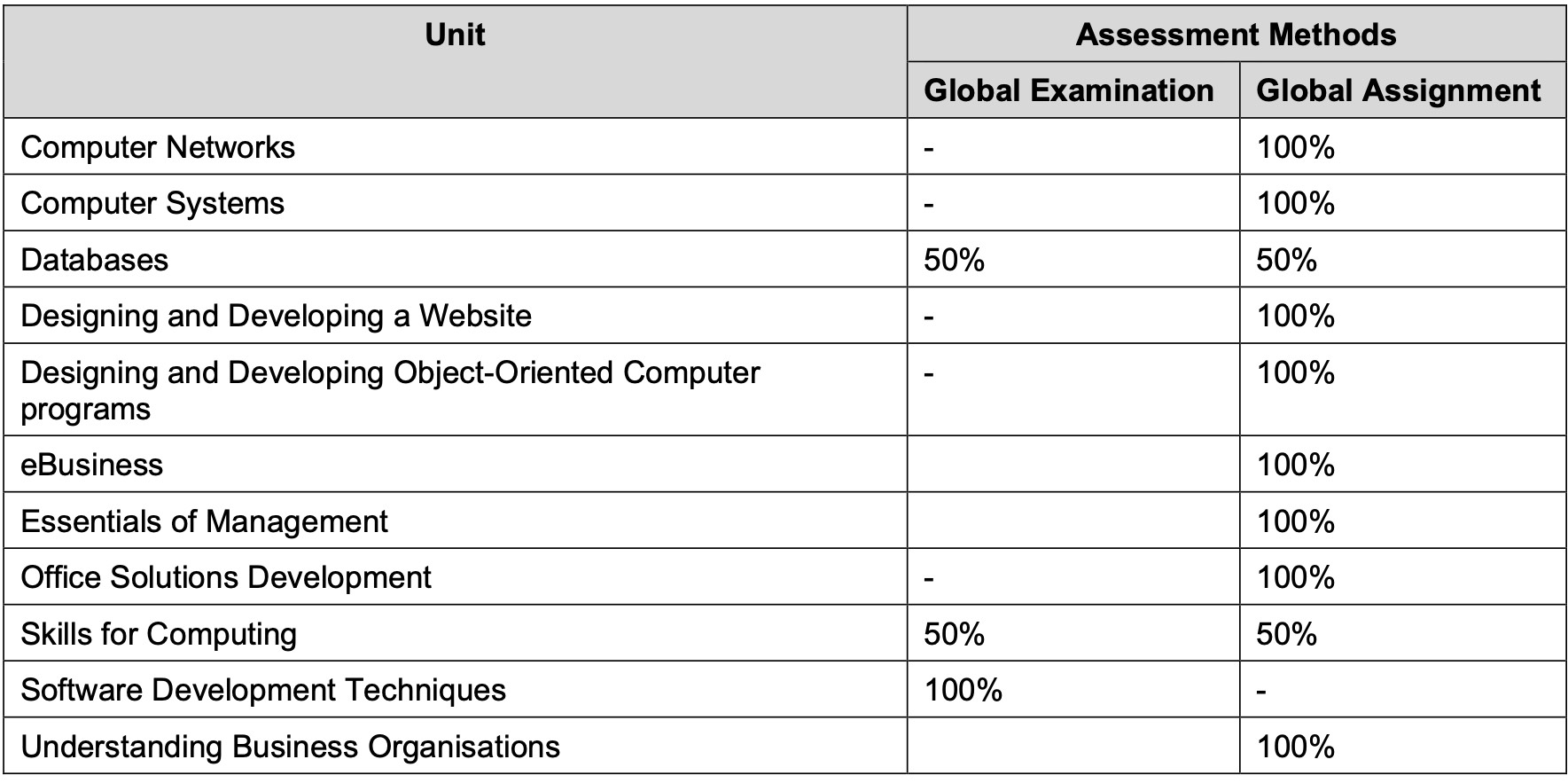
Note: Assessments for all modules are offered in a number of assessment cycles throughout the year. Modules are assessed by both examination and coursework assignments.
Year 3 (Cambodia/Laos) / Year 2 (UK/AUS/NZ) / Junior Year (US/CAN)
NCC Education Level 5 Diploma in Computing (L5DC)
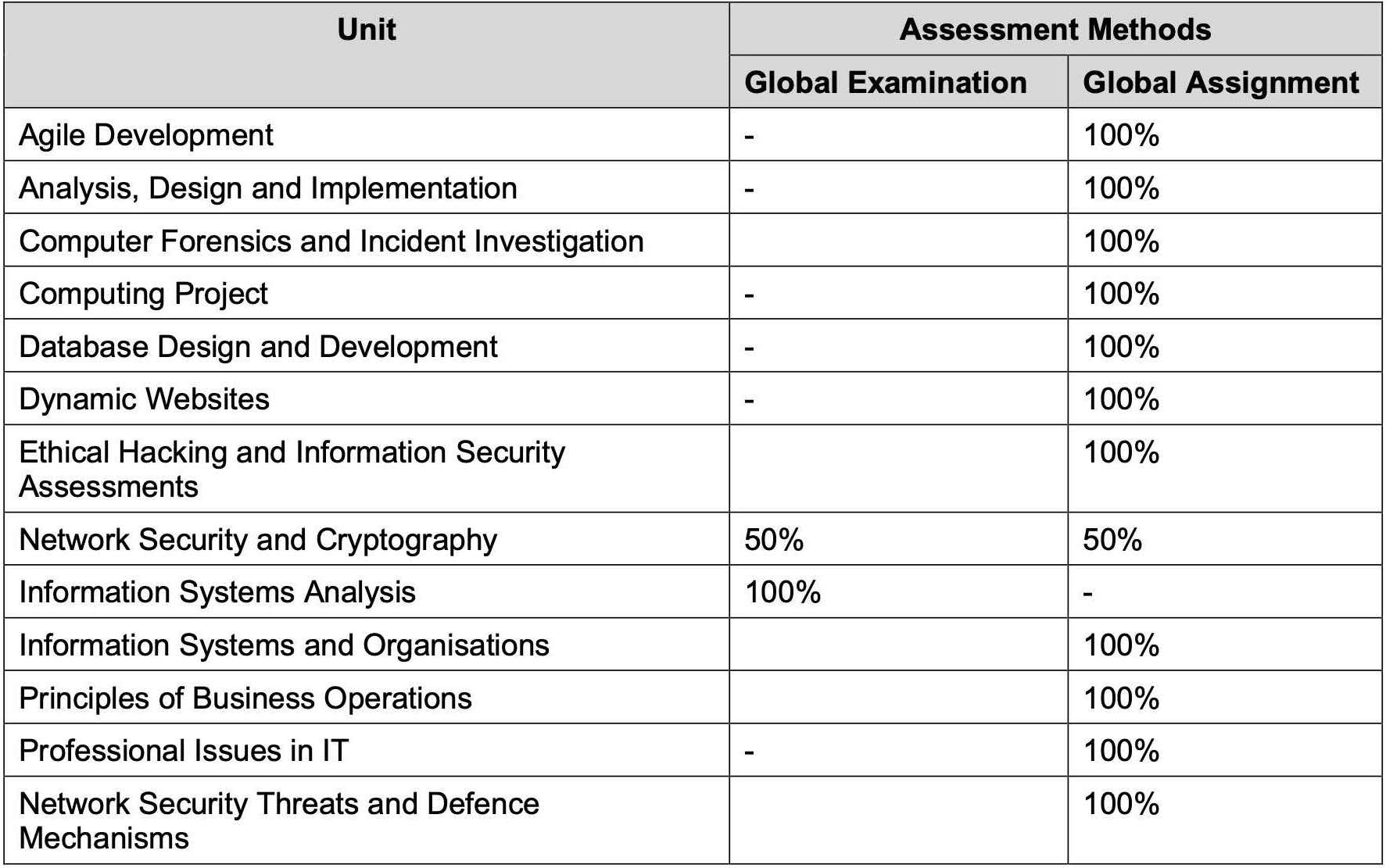
Note: Assessments for all modules are offered in a number of assessment cycles throughout the year. Modules are assessed by both examination and coursework assignments.
Bachelor of Science (Hons) Computing
Bachelor of Science (Hons) Computing with Network Systems
Bachelor of Science (Hons) Computing with Information Systems
Assessment is through examination and coursework assignments (run by university partner)
NCC Education Level 4 Diploma in Computing (L4DC)

Note: Assessments for all modules are offered in a number of assessment cycles throughout the year. Modules are assessed by both examination and coursework assignments.

Year 3 (Cambodia/Laos) / Year 2 (UK/AUS/NZ) / Junior Year (US/CAN)
NCC Education Level 5 Diploma in Computing (L5DC)

Note: Assessments for all modules are offered in a number of assessment cycles throughout the year. Modules are assessed by both examination and coursework assignments.
Year 4 (Cambodia/Laos) / Year 3 (UK/AUS/NZ) / Senior Year (US/CAN)
Bachelor of Science (Hons) Computing
Bachelor of Science (Hons) Computing with Network Systems
Bachelor of Science (Hons) Computing with Information Systems
Assessment is through examination and coursework assignments (run by university partner)
Admission requirements
Academic:
- Completion of high school with GPA at least 2.0 to 3.0 from an international school
- International Baccalaureate
- 1 GCE 'A' Level pass
- Level 2 International Foundation Diploma for Higher Education Studies (awarded by NCC Education)
- Other international secondary or post-secondary qualification will be considered individually.
English Language:
BSc/BA applicants are required to pass Cambridge placement test at level B1 and an oral part with speaking task.
If the applicant has a certificate of
- Completion of high school with GPA at least 2.0 to 3.0 from an international school
- International Baccalaureate
- 1 GCE 'A' Level pass
- Level 2 International Foundation Diploma for Higher Education Studies (awarded by NCC Education)
- Other international secondary or post-secondary qualification will be considered individually.
English Language:
BSc/BA applicants are required to pass Cambridge placement test at level B1 and an oral part with speaking task.
If the applicant has a certificate of
- Cambridge English B1 preliminary certificate
- The International English Language Testing System (IELTS Academic) with a minimum overall score of 5.5
- The Test of English as a Foreign Language (TOEFL) with a minimum score of 70 in the iBT version
- International GCSE English as a Second Language with a score of C or higher on extended curriculum
- A B2 level English language certificate
- Previous studies in English
- Native speaker of English (based on passport citizenship)
University progression partners (Top up or final year)
Please note that university progression routes are updated https://www.nccedu.com/become-a-student/university-progression/
weekly. Therefore we recommend checking the NCC Education website on a monthly basis to ensure the university progression information on the Springboard College website is correct.
|
Abertay University
De Montfort University Leicester Deakin University Glasgow Caledonian University Kingston University London Letterkenny Institute of Technology London Metropolitan University Middlesex University London Nottingham Trent University |
Southern Cross University
Unitec Institute of Technology University of Central Lancashire University of Greenwich University of Northampton University of the West of England, Bristol University of Worcester |
Top up degree programme in country
Bachelor of Science (Hons) Computing (Network systems or Information Systems)
This qualification provides students with the required theoretical knowledge and practical skills to apply to a real business environment. The degree is awarded by the University of Greenwich. The first and second year of the degree journey is awarded and certificated by NCC Education. The BSc (Hons) Computing (with specialisations available in Network Systems and Information Systems) Top-up Degree is delivered by NCC Education Accredited Partner Centres. It has been designed to prepare students for employment in the IT sector.
This qualification provides students with the required theoretical knowledge and practical skills to apply to a real business environment. The degree is awarded by the University of Greenwich. The first and second year of the degree journey is awarded and certificated by NCC Education. The BSc (Hons) Computing (with specialisations available in Network Systems and Information Systems) Top-up Degree is delivered by NCC Education Accredited Partner Centres. It has been designed to prepare students for employment in the IT sector.
Awarding body
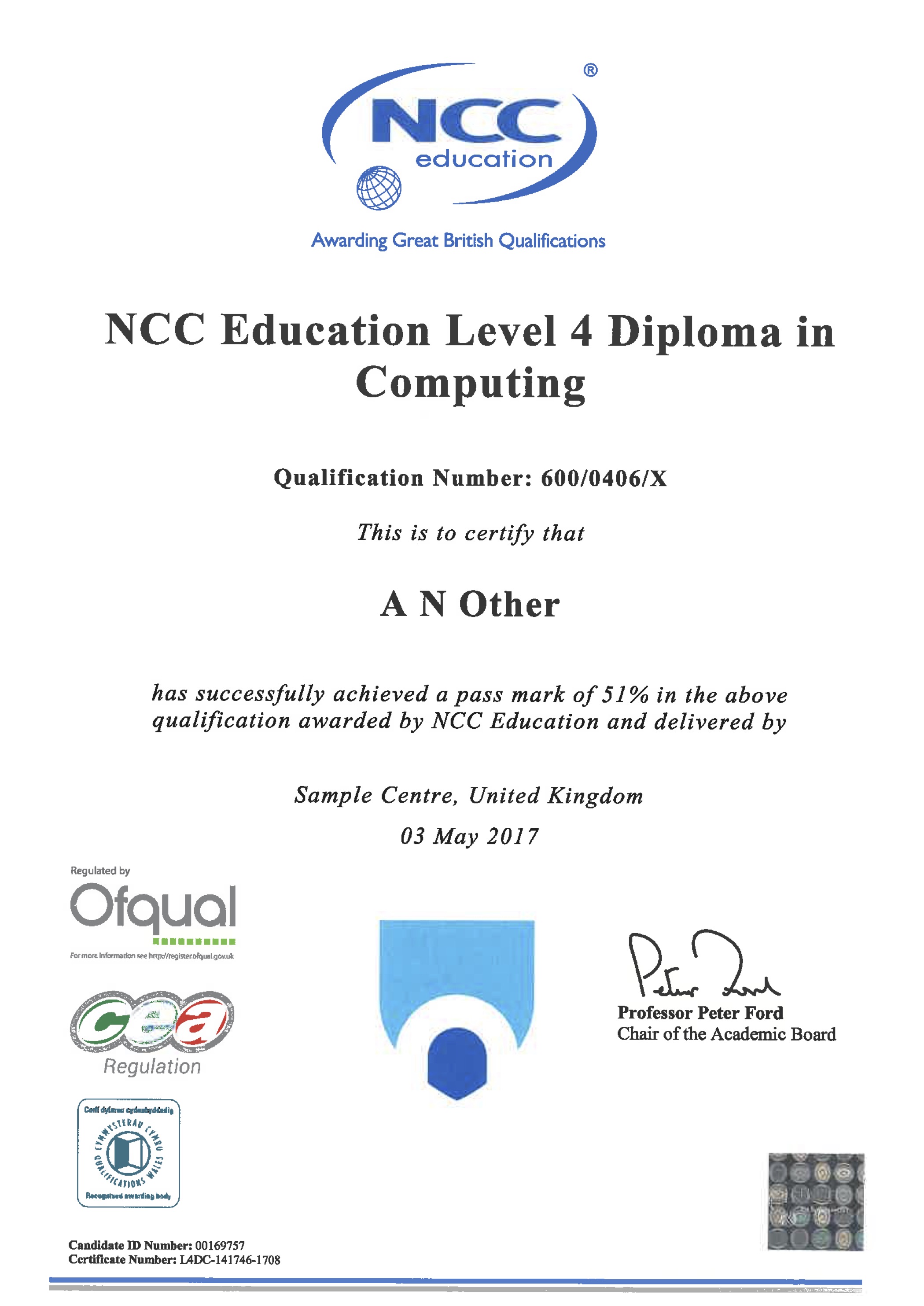
Year 3 (KH/LA) / Year 3 (UK/AUS/NZ) / Junior Year (US/CAN)
NCC Education Level 5 Diploma in Computing (RQF) (L5DC)
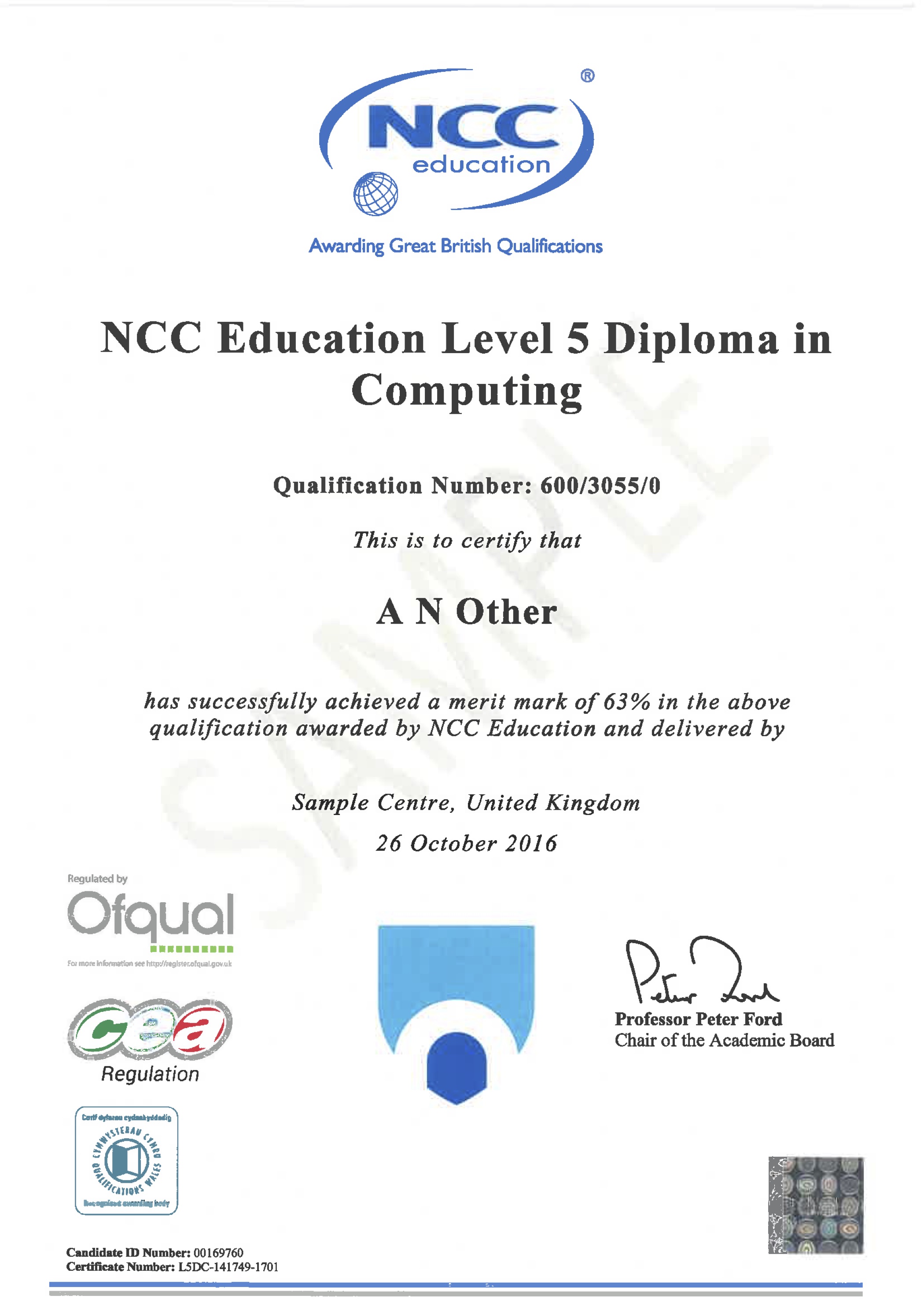
Year 4 (KH/LA)/ Year 3 (UK/AUS/NZ) / Senior Year (US/CAN)
Bachelor of Science (Hons) Computing or
Bachelor of Science (Hons) Computing with Network Systems or
Bachelor of Science (Hons) Computing with Information Systems
(Top up online)

Year 2 (KH/LA) / Year 1 (UK/AUS/NZ) / Sophomore Year (US/CAN)
NCC Education Level 4 Diploma in Computing (RQF) (L4DC)

Year 3 (KH/LA) / Year 3 (UK/AUS/NZ) / Junior Year (US/CAN)
NCC Education Level 5 Diploma in Computing (RQF) (L5DC)

Year 4 (KH/LA)/ Year 3 (UK/AUS/NZ) / Senior Year (US/CAN)
Bachelor of Science (Hons) Computing or
Bachelor of Science (Hons) Computing with Network Systems or
Bachelor of Science (Hons) Computing with Information Systems
(Top up online)

Career opportunity
The field of computer science focuses on the study of software systems, and a degree in the discipline allows someone to pursue a variety of careers. Contrary to what it may seem, the demand for computer scientists is not limited to positions in many technology companies. Instead, the increasing use
of technology throughout the business world means that companies in many industries are hiring grads of computer science programs.
of technology throughout the business world means that companies in many industries are hiring grads of computer science programs.
- Data scientist
- Software tester
- Web developer
- Systems analyst
- Business analyst
- Product manager
- Network architect
- Software engineer
- Software developer
- Full-stack developer
- Engineering manager
- User interface designer
- Database administrator
- Cloud computing engineer
- Information security analyst
- Computer science professor
- Chief information security officer
- Software quality assurance manager
- Information technology specialist
- Mobile application designer or developer
- Research and development (R&D) scientist
- Computer scientist or computer science researcher
- Artificial intelligence and machine learning engineer
Tuition fees
An excellent study programme and an access to study the British qualification locally or progressing to top up programme in the UK, US, Australia, New Zealand, and Canada at a SpringBoard College | International will provide you with opportunities for your entire career path.
The investment in your future is worth it.
More information about fees and funding, how to make payment, bursary. . .
Click here
NCC Education progression partner universities

